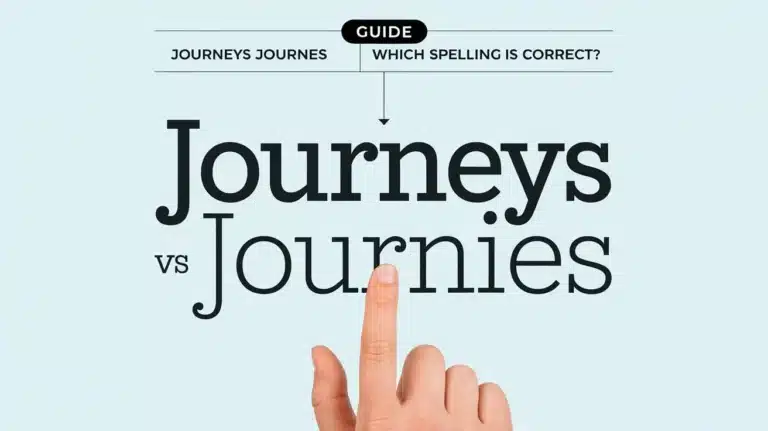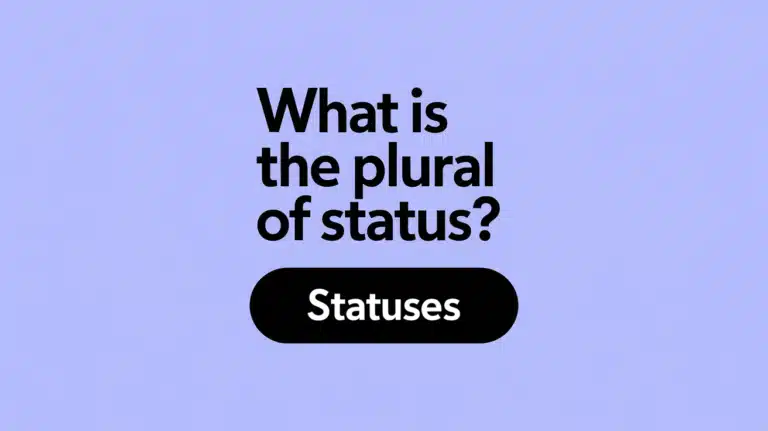Buses or Busses: What’s the Correct Plural of Bus?
When it comes to the plural of bus, many people find themselves puzzled by whether to use buses or busses. This confusion stems from the intricacies of English pluralization rules and the evolution of the word itself. In this article, we’ll explore the correct plural form, delve into the etymology of bus, examine common grammar mistakes, and provide clarity through examples, synonyms, and real-world usage. Let’s settle this debate once and for all.
Understanding the Pluralization Debate
Why Is There Confusion Between “Buses” and “Busses”?
The English language is filled with quirks that often baffle learners and native speakers alike. The confusion over buses or busses arises because both forms seem plausible based on spelling patterns. Historically, some people doubled the “s” to form the plural, similar to how “kiss” becomes “kisses.” However, this approach doesn’t align with modern English pluralization rules, where adding just “es” suffices for words ending in “s.”
The Role of Spelling Variants in English
English is notorious for its inconsistent spelling conventions. Variants like “busses” persist in older texts or informal settings but are now considered outdated terms in English. The shift to “buses” reflects the language’s evolution toward simplification and standardization.
The Correct Plural Form of “Bus”
“Buses”: The Standard Accepted Plural
The correct plural form of “bus” is buses. This form follows the general rule of adding “es” to words ending in “s,” ensuring both clarity and grammatical correctness. Modern dictionaries and grammar guides universally endorse this spelling.
“Busses”: Is It Ever Correct?
While “busses” might occasionally appear, it is largely considered incorrect in contemporary usage. However, in some rare contexts, “busses” could refer to “kisses” rather than public transportation vehicles, showcasing the importance of context.
Read More About : The Correct Spelling of ‘Ma’am’: A Guide to Getting it Right
What Does “Bus” Mean?
Modern Definitions and Uses
A “bus” typically refers to a public transportation vehicle designed to carry passengers over short or long distances. However, the term extends beyond transportation, finding relevance in computing systems, where “bus” describes a communication pathway that transfers data between components.
Evolution of the Term “Bus”
The word “bus” is a shortened form of the Latin term omnibus, meaning “for everyone.” Initially used in 19th-century public transport, the term was gradually shortened to “bus,” making it more accessible and widely adopted.
Grammar Rules Behind “Buses”
General Rules for Forming Plurals in English
Forming plurals in English often involves:
- Adding “s” for most nouns (e.g., car → cars).
- Adding “es” for nouns ending in s, x, z, ch, or sh (e.g., bus → buses).
These English grammar rules ensure consistency and clarity in written communication.
How “Bus” Fits These Rules
“Bus” ends with “s,” so adding “es” is both logical and consistent with other similar words like “class → classes” and “glass → glasses.”
Words with Similar Pluralization Patterns
Examples of Words Ending in “-s”
Here are a few examples that align with the pluralization rule of “bus”:
| Singular | Plural |
|---|---|
| Bus | Buses |
| Kiss | Kisses |
| Class | Classes |
| Glass | Glasses |
Exceptions and Irregular Forms
Some words defy these patterns, such as “mouse → mice” or “goose → geese,” but “bus” fortunately adheres to standard rules.
Synonyms and Alternative Terms for “Bus”
Regional Variations
In different parts of the world, alternative terms for bus include:
- Coach: Common in British English, often for long-distance travel.
- Shuttle: Refers to smaller, localized transportation services.
- Transit: A broader term encompassing various public transport vehicles.
Contextual Usage of Synonyms
Depending on the setting, “bus” may also be referred to as a school bus, city bus, or even a charter bus.
Usage Examples of “Buses” in Sentences
Everyday Examples for Clarity
- “The city added more buses to its fleet to reduce wait times.”
- “School buses line up every morning at the elementary school.”
- “Tourists boarded the buses heading to popular landmarks.”
Examples Highlighting Common Errors
- Incorrect: “The school busses are parked outside.”
- Correct: “The school buses are parked outside.”
The Etymology of “Bus”
Origins of the Word
The term “bus” originates from the Latin word omnibus, meaning “for all.” This reflects the inclusive nature of public transportation vehicles.
How Its Use Has Evolved Over Time
Initially used for horse-drawn carriages, “bus” transitioned to motorized vehicles in the 20th century. Its usage expanded further with the rise of computing systems, where it describes a pathway for data transfer.
Frequently Asked Questions
Is “Busses” Ever Used in Modern English?
“Busses” is rarely used today and is generally regarded as a misspelling of buses. It may occasionally appear in older texts or informal writing.
Can Context Determine the Plural Form?
Yes, context plays a role. For instance, “busses” might be used to describe kisses in poetic or informal writing, but it is incorrect for public transportation vehicles.
Does Pronunciation Vary Between the Forms?
No, both “buses” and “busses” are pronounced the same, further contributing to confusion in written forms.
Conclusion
The debate over buses or busses highlights the complexities of English pluralization rules. While “busses” might appear in outdated texts, the correct plural form is unequivocally “buses.” Understanding the rules and history behind the word “bus” not only clarifies its usage but also enriches our appreciation of the linguistic evolution within English. Next time you see multiple public transport vehicles, you’ll know exactly how to refer to them.
Key Takeaways
- Buses is the correct and standard plural of “bus.”
- Follow English grammar rules to avoid common grammar mistakes.
- Explore alternative terms like “coach” or “shuttle” for variety.
- The etymology of bus reveals its inclusive origins.
For more grammar tips and insights into English pluralization, stay tuned to our blog!







